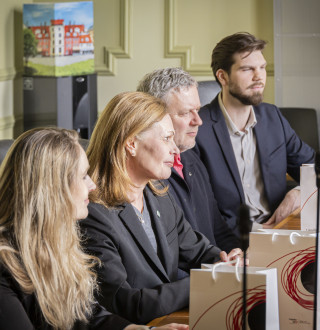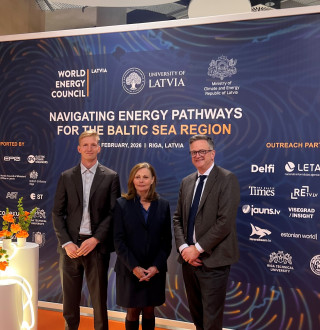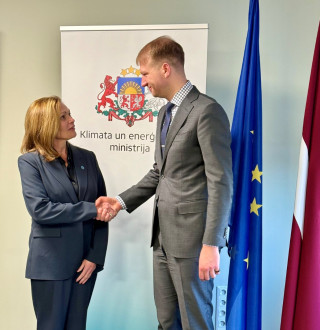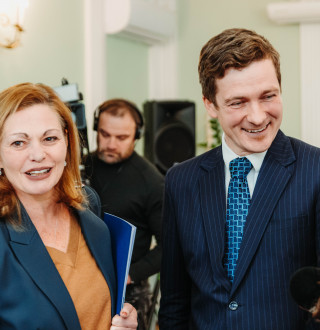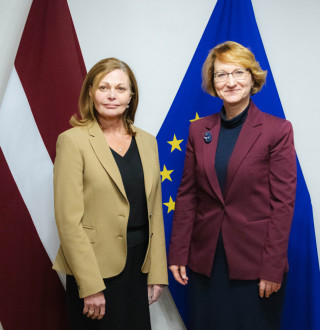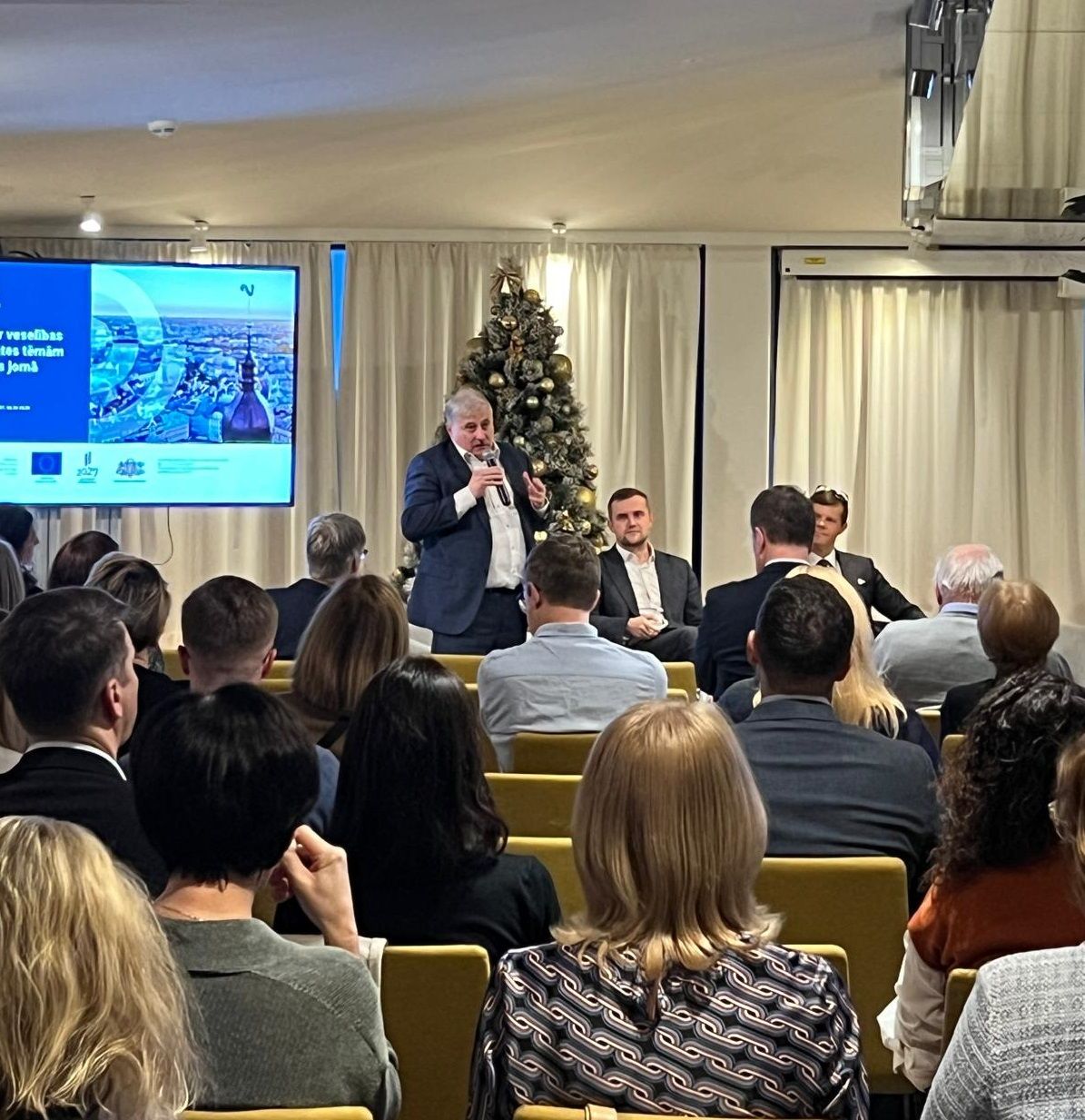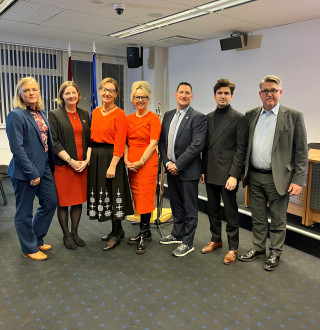On 2 December, a conference of representatives of the Nordic-Baltic Comprehensive Cancer Centre (CCC) Network was held in Riga. It was initiated by the Ministry of Health of Latvia and hosted by the Riga East University Hospital.
The event consisted of speeches and presentations by field experts and group discussions, addressing questions such as how the active involvement of the Network in the work of the European networks can contribute to the development and maximize impact of the Nordic-Baltic network. The status of sustainable Comprehensive Cancer Centres (CCC) certification was also discussed at the conference.
Opening remarks were given by Mārcis Leja, Director of the Comprehensive Cancer Centre at the Institute of Clinical and Preventive Medicine of the University of Latvia, Artjoms Uršuļskis, Parliamentary Secretary at the Ministry of Health of Latvia, Ivars Ijabs, Member of the European Parliament, and Normunds Staņevičs, Chairman of the Board of the Riga East University Hospital.
The Nordic-Baltic Comprehensive Cancer Centre (CCC) Network was established a few years ago as an informal cooperation organisation. The cancer plan for European sets a target of 90% of European cancer patients to be provided access to a comprehensive cancer centre by 2030 to reduce inequality. Such a centre are expected to be operating in every European country and the centres should cooperate at European level to form an EU network of Comprehensive Cancer Centres. Although the Nordic-Baltic Comprehensive Cancer Centre Network is still at an early stage of development, it is already being cited at European level as an example and success story for regional cooperation.
The mission of the Nordic-Baltic Network is to stimulate cooperation among the existing and future comprehensive cancer centres in the region, through exchange of experience, cross-border knowledge sharing, and by fostering research collaboration and the translation of scientific discoveries into patient treatment and care.
For the first time such meeting has been held in either of the Baltic countries. At the conference, participants presented progress report on accreditation of comprehensive cancer centres in their country. Dr. Andrejs Pčolkins, Head of the Latvian Oncology Centre at the RAKUS hospital, elaborated on the situation in Latvia, whereas Per Magnus Mæhle, Head of the University Hospital of Oslo, described current EUnetCCC certification procedures.
Attendees of the event praised the political support for the cooperation and activities in the field of oncology, in particular the political vision and support of Ivars Ijabs, representative of the European Parliament, the support of Artjoms Ušuļskis, Parliamentary Secretary of the Ministry of Health of Latvia, and the initiative by Normunds Staņevičs, Chairman of the Board of Riga East University Hospital, to steer the change management group in the field of oncology. This signalizes a wide support for the development of international cooperation; however, the success of such cooperation depends also the involvement of Latvian specialists.
This article was made in collaboration with “Rīgas Austrumu klīniskās universitātes slimnīca” Ltd.
